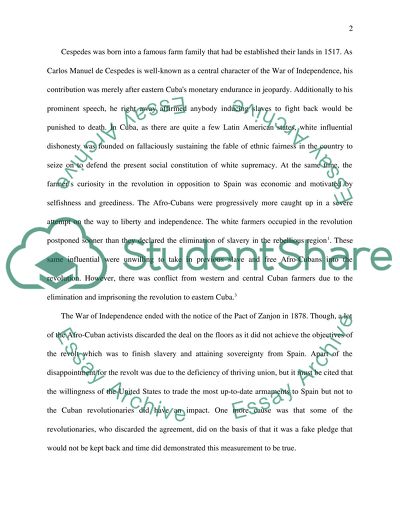Cite this document
(“The Role of Afro-Cubans in the 1898 War of Independence Essay”, n.d.)
The Role of Afro-Cubans in the 1898 War of Independence Essay. Retrieved from https://studentshare.org/miscellaneous/1515678-the-role-of-afro-cubans-in-the-1898-war-of-independence
The Role of Afro-Cubans in the 1898 War of Independence Essay. Retrieved from https://studentshare.org/miscellaneous/1515678-the-role-of-afro-cubans-in-the-1898-war-of-independence
(The Role of Afro-Cubans in the 1898 War of Independence Essay)
The Role of Afro-Cubans in the 1898 War of Independence Essay. https://studentshare.org/miscellaneous/1515678-the-role-of-afro-cubans-in-the-1898-war-of-independence.
The Role of Afro-Cubans in the 1898 War of Independence Essay. https://studentshare.org/miscellaneous/1515678-the-role-of-afro-cubans-in-the-1898-war-of-independence.
“The Role of Afro-Cubans in the 1898 War of Independence Essay”, n.d. https://studentshare.org/miscellaneous/1515678-the-role-of-afro-cubans-in-the-1898-war-of-independence.


